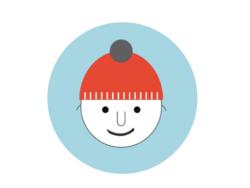GALE is partner European project ALICE on prosociality

15 October 2018 - GALE partners in a new European project on prosociality. “Prosociality” is a rather new concept which may help to explain how social behavior works and make interventions more effective. The project started earlier this year and will end in October 2019. It should result in a manual for work in secondary schools and a European network of schools working on prosociality.
Eradicating bullying is not enough
The ALICE-project focuses on “prosociality”. This is a wider concept than for example “antibullying”. Antibullying strategies focus on eradicating negative behavior. But with this focus, such strategies often forget to replace the eradicated behavior with something else: positive behavior. Because cultural patterns and emotions of fear and anger are key determinants of negative behavior, and these are not touch by such eradicating strategies, antibullying strategies are often only temporary effective. The ALIOC-team look at a deeper level at what is needed to build structural positive behavior.
Prosociality
Prosociality focuses on building positive behavior patterns. A general definition of prosocial behavior is that people intend to benefit another. But how does this work? The project team tries to understand the essence of prosocial behavior by using the taxonomy of prosocial behavior that was proposed by Kristen Dunfield. Dunfield proposes that children need three abilities to be prosocial successfully:
- the ability to take the perspective of the other and recognize that they have a problem (for example that LGBTI people are discriminated and disadvantaged because of that)
- the ability to determine the cause of the problem (for example to understand heteronormativity that is built in laws, culture and social attitudes)
- the motivation to help them overcome the problem (for example to speak up against name-calling in the school yard or against prejudiced comments by teachers)
The project strategy
The project strategy is to construct a survey that reliably measures how young people score on these abilities. With the results, the project partners engage in dialogues in class, in the teacher team and with parents on what actions will stimulate that students can learn the abilities and motivation to “do the right thing”.
The team is very aware that this is not just a question of being individually nice to another. There are several legal, cultural and social constraints to be prosocial in an effective way. If a neoliberal society constantly promotes to put yourself first, if necessary, to the disadvantage of others, this will limit the possibilities to be prosocial. When homophobia and transphobia are prevalent and even supported by official institutions like churches, this will also limit possibilities to be prosocial. GALE participates in this project to make sure such structural challenges get attention and that we explore how these can be overcome.
Peter Dankmeijer
- More on the project: https://www.gale.info/en/projects/alice-project
- Not a GALE member, but you want to keep updated about the ALICE-project? Register to LGBT Education


